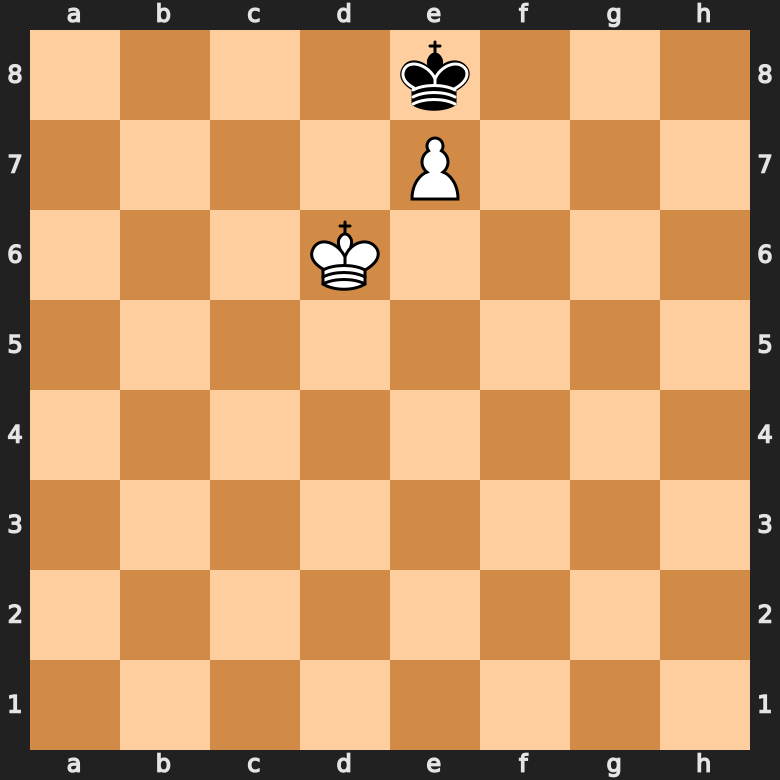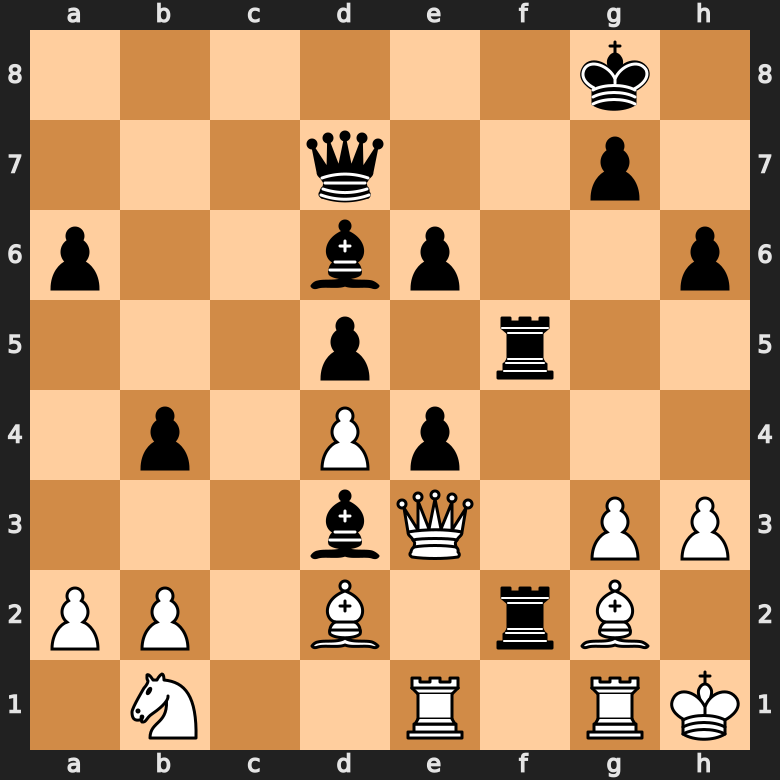Zugzwang in Chess: Everything You Need To Know
Since you aren’t allowed to skip moves in chess, situations can arise, in which every move a player could make, worsens their position. This is called being in zugzwang; German for “compulsion to move“. Let’s find out more about zugzwang in this guide!
What is Zugwang?
The strict definition of the word zugzwang is “a situation found in chess, wherein one player is put at a disadvantage because of their obligation to make a move”. It’s quite hard to imagine such a position, so let’s look at a very simple example:

With Black being the player to move, you can see a problem arises for them: They need to guard the e8 square to prevent a pawn promotion.
The only square for the black king to move to is f7. After which, White simply advances their king to d7, in turn taking control of the e8 square. The game is now lost for Black, as White can promote their pawn into a queen or rook to force a checkmate.
Obviously, Black would’ve loved to skip a move, to avoid letting go of the e8 square. This is exactly what zugzwang is about: Moving, even though you really don’t want to.
Zugzwang Examples in Complex Games
Obviously, the example above is greatly simplified; although this type of position arises thousands of times a day in online chess. But let’s look at zugzwang in the context of more complex games, especially in the middlegame.
The Immortal Zugzwang Game
This 1923 game, played between between Sämisch and Nimzowitsch in Copenhagen, is known as the Immortal Zugzwang Game, and for good reason. Have a look at the position, in which White resigned:

In this position, White has a few pawn moves left, which don’t lose material instantly, but sooner or later, one of his pieces has to be moved.
Try finding a move for White’s pieces, that doesn’t lose material!
Well, Sämisch struggled to find one as well, which is why he resigned. Although, to be fair, the position itself was already losing, even without the zugzwang. Even if White could’ve skipped moves, Black would eventually be able to trap the white queen and win from there.
Chess Youtuber agadmator has an excellent video explaining the whole game between Sämisch and Nimzowitsch:
Why Is It Called Zugwang?
Zugzwang is a German word for the situation of being forced to move. The first account of the word being used was in German chess literature somewhere around the year 1850. The first time the German word was used in the English language was in 1905 by Chess World Champion Emanuel Lasker.
However, the concept of zugzwang was known for centuries before the word was even invented. The concept dates back to endgame studies published in the early 1600’s.

